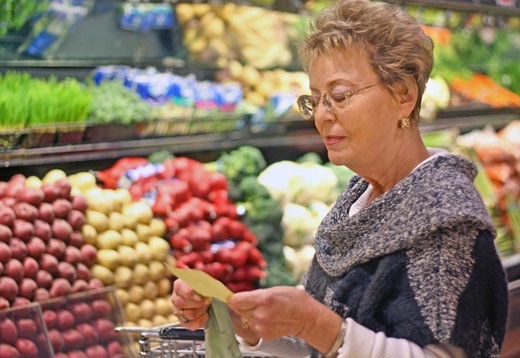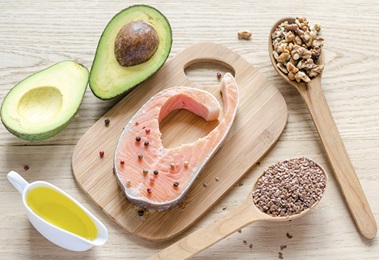Your Guide to a Heart-Healthy Grocery List
To eat for better heart health, you need a fridge and pantry stocked with heart-healthy foods. Fruits, vegetables, and fish or chicken are obvious places to begin, but from there the supermarket aisles get a little more confusing.

Johns Hopkins registered dietitian Kathleen Johnson, M.A., R.D., L.D.N. , put together a grocery list that will make you feel confident about your choices for heart-healthy foods.
“The key is to think about all the foods you can eat,” says Johnson. “That mind-set will set you up for success.”
Here are her top suggestions for turning your weekly grocery run into an adventure in heart-healthy foods.
Foods That Lower Blood Pressure
You’ve likely heard that added salt can get in the way of any effort to lower blood pressure. But what’s not discussed much are foods that lower blood pressure naturally, says Johnson. You’ll want to look for food filled with heart-protective fiber, vitamins, and the minerals potassium, magnesium and calcium. Try:
- quinoa (use this versatile grain as you would rice)
- broccoli
- kale
- white beans
- sweet potatoes
- spinach
- edamame
- pumpkin seeds
- beets
Tip: You can still enjoy flavor by seasoning with herbs and spices instead of salt, says Johnson.
Good Fats
Fat has gotten a bad rap over the years, but some good fats play a crucial role in supporting a heart-healthy lifestyle. Unsaturated fats — monounsaturated and polyunsaturated are the two main types — reduce the amount of bad, low-density lipoprotein (LDL) cholesterol in the blood, which in turn can help lower the risk of heart disease. Johnson says the following “good fats” should be considered kitchen staples.
- nuts and seeds
- olive oil (if possible, buy extra virgin, cold pressed olive oil, which Johnson says is the highest quality)
- avocados
- fatty fish, such as salmon, trout and tuna
Tip: If you have a habit of succumbing to impulse purchases (such as that bag of tortilla chips cleverly placed near the tomatoes and avocados in the produce section), Johnson suggests shopping with a list — and sticking to it.
What the Experts Do Skip Organics?
In your quest to eat healthy foods, it will become clear that organic foods can cost prohibitively more than nonorganics. If you are able, prioritize organic purchases to include those with skin being consumed — for example, spinach, berries and apples, says dietitian Kathleen Johnson. But what’s most important is that you consume lots of fruits and vegetables, period.






